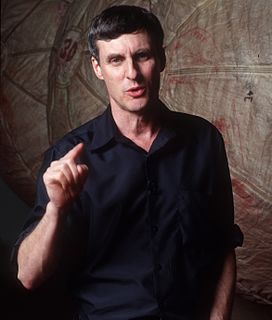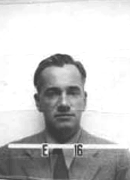A Quote by Bas van Fraassen
Philosophers often think all scientists must be scientific realists. If you ask a simple question like "Are electrons real?" the answer will be "Yes". But if your questions are less superficial, for example whether some well-known scientist was a good scientist. Then, they had insisted that only empirical criteria matter and that they actually did not believe in the reality of sub-atomic entities. Ask "If that turned out to be true, would you still say they were good scientists?" The answer would reveal something about how they themselves understood what it is to be a scientist.
Quote Topics
About
Actually
Answer
Ask
Atomic
Be True
Believe
Criteria
Did
Electrons
Empirical
Entities
Example
For Example
Good
Had
How
Insisted
Known
Less
Like
Matter
Must
Often
Only
Out
Question
Questions
Real
Reality
Reveal
Say
Scientific
Scientist
Scientists
Simple
Some
Something
Still
Superficial
Themselves
Then
Think
True
Turned
Understood
Well
Were
Whether
Will
Would
Yes
Your
Related Quotes
My mother made me a scientist without ever intending to. Every other Jewish mother in Brooklyn would ask her child after school, So? Did you learn anything today? But not my mother. Izzy, she would say, did you ask a good question today? That difference - asking good questions - made me become a scientist.
To be a scientist you have to be willing to live with uncertainty for a long time. Research scientists begin with a question and they take a decade or two to find an answer. Then the answer they get may not even answer the question they thought it would. You have to have a supple enough mind to be open to the possibility that the answer sometimes precedes the question itself.
When you ask why did some particular question occur to a scientist or philosopher for the first time, or why did this particular approach seem natural, then your questions concern the context of discovery. When you ask whether the argument the philosopher puts forth to answer that question is sound, or whether the evidence justifies the scientific theory proposed, then you've entered the context of justification. Considerations of history, sociology, anthropology, and psychology are relevant to the context of discovery, but not to justification.
You should not use your fireplace, because scientists now believe that, contrary to popular opinion, fireplaces actually remove heat from houses. Really, that's what scientists believe. In fact many scientists actually use their fireplaces to cool their houses in the summer. If you visit a scientist's house on a sultry August day, you'll find a cheerful fire roaring on the hearth and the scientist sitting nearby, remarking on how cool he is and drinking heavily.
We scientists have fantasies of being uniquely qualified to make great discoveries. Alas, reality is cruel: most of us are replaceable. For the vast majority of scientific contributions, if scientist X hadn't achieved it that year, scientist Y would have achieved the same result or something very similar soon thereafter.
Scientists are educated from a very early time and a very early age to believe that the greater scientist is the scientist who makes discoveries or theories that apply to the greatest ambit of things in the world. And if you've only made a very good theory about snails, or a very good theory about some planets but not about the universe as a whole, or about all the history of humankind, then you have in some sense accepted a lower position in the hierarchy of the fame of science as it's taught to you as a young student.
In other philosophies, my questions would get answered to some degree, but then I would have a follow-up question and there would be no answer. The logic would dead-end. In Scientology you can find answers for anything you could ever think to ask. These are not pushed off on you as, 'This is the answer, you have to believe in it.' In Scientology you discover for yourself what is true for you.
When I think about discussions at the Society for Philosophy and Psychology, a group which includes not only philosophers and psychologists, but also computer scientists and linguists, it is noteworthy that one can't always tell just from the content of particular contributions from the audience, whether a given questioner is a philosopher or an empirical scientist.
I don't think any administration, when they come in, thinks that their job is to tell the scientists what the science looks like or to be quiet about the science. Scientists need to remain true and not allow science to be politicized. Scientists are not politicians, and no politician should consider themselves to be a scientist.
Scientists have one thing in common with children: curiosity. To be a good scientist you must have kept this trait of childhood, and perhaps it is not easy to retain just one trait. A scientist has to be curious like a child; perhaps one can understand that there are other childish features he hasn't grown out of.
Since I stayed in a colony where either one was an engineer or a scientist, everybody thought I would be a scientist. This was the expectation everybody had apart from my parents. Honestly, I, too, wanted to be a scientist. I think it was the way Dad would explain us scientific theories and concepts that made the subject more intriguing.









































